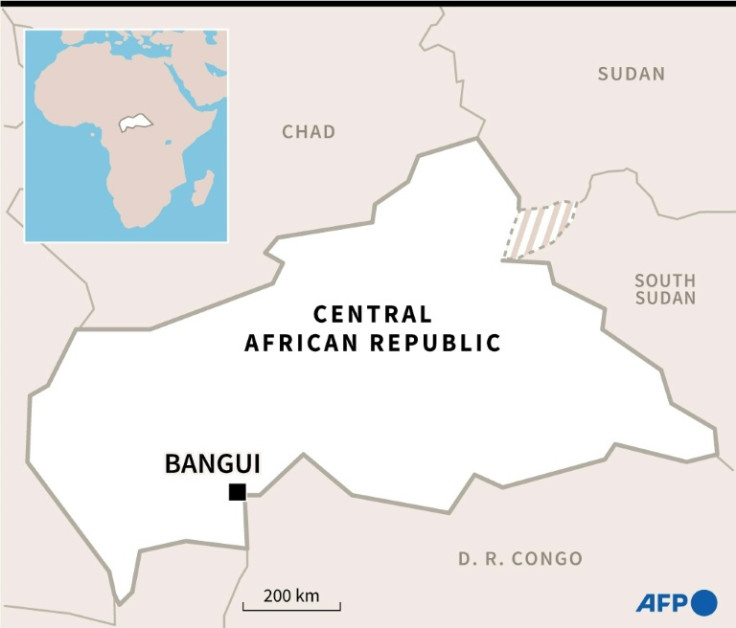
Yalex Masco Sene-Bembe, a passenger on an overloaded river boat that sank in the Central African Republic killing dozens, says he is still "in a state of shock" after rescuing four people.
"I was on the roof of the whaler when I heard a first crack," the 38-year-old recalls, followed by a second as the vessel broke in two on the Mpoko River in the capital Bangui on Friday.
"I saw my wife starting to go under the water," he tells AFP back home in Bangui on Monday, the first of three days of national mourning.
"I saved four people, including my wife, my father, my sister and one person I don't know."
Despite the panic, he pulled his wife out first, "then I went back to look for my sister and father, but my niece died in hospital".
The latest toll from civil protection authorities listed 62 bodies retrieved from the river so far.
"The victims are mainly women, people aged over 50, children and the vulnerable ... but some rescue workers too," according to civil protection service chief Thomas Djimasse.
The flat-bottomed wooden boat was carrying more than 300 people, some had been standing as the boat was so full, according to witnesses and videos on social media.
They were travelling to attend the funeral of a village chief.
Sitting on a veranda surrounded by her family, Brigitte Imilymako was the chief's third wife.
She struggles to articulate her thoughts about the tragic events.
"It's at the village of Bokassi that we realised that the whaler was not coming," she says.
"My son phoned and he was told the boat had capsized. We went into a panic but we decided to go ahead with the burial."
On Saturday Imilymako found out that her daughter had died on the boat.
"I am in shock. Losing my husband, my daughter and relatives in such a short space of time is unbearable," she sobs.
Guy Malizekama, the brother of the late village chief, explains that he hired the whaler boat to enable the large number of family acquaintances and friends to attend the funeral.
For the civil protection service, the main causes of the disaster appear to be the ageing wooden vessel's poor condition, the weight of all the people piled on board and the strength of the river currents amplified by rain the day before the disaster.
"About 100 people were rescued out of the 300 on the whaler," according to Djimasse, implying the official death toll could rise considerably.
The search is continuing for the missing with about 50 families without news of loved ones.
Government spokesman Maxime Balalou on Saturday announced an inquiry would be opened to establish the causes. President Faustin Archange Touadera declared three days of national mourning from Monday.
Video images on social media showed people trying to swim to the bank and others rescued by fishermen in dugout canoes known as pirogues and nearby sand dredgers before rescuers arrived.
Bonaventure Zekemaya says she was under a crush of people as the boat went down.
"Fortunately I know how to swim but I swallowed some water because it was hard to push the people off me," the 52-year-old adds.
"After battling to get out, I saw a woman next to me ... I just grabbed her feet and got out with her until we were saved," before fainting.







